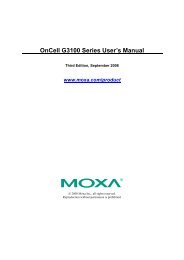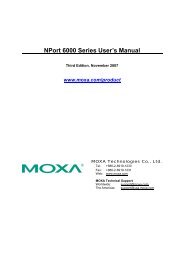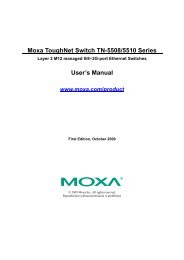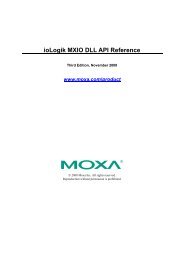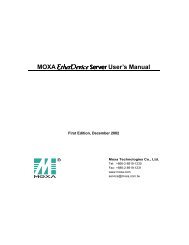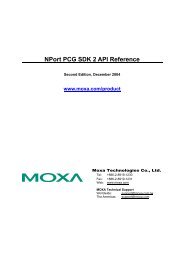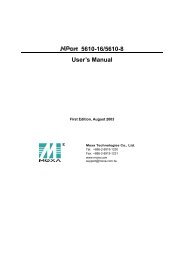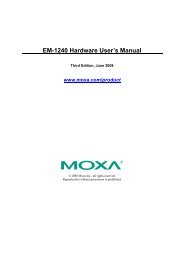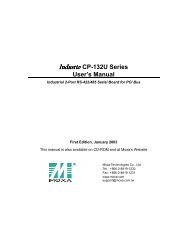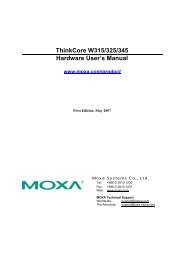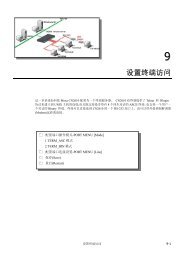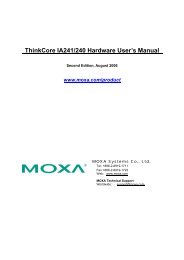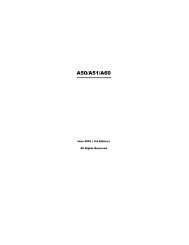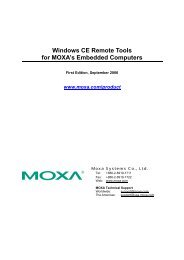NPort 5110 User's Manual - Moxa
NPort 5110 User's Manual - Moxa
NPort 5110 User's Manual - Moxa
You also want an ePaper? Increase the reach of your titles
YUMPU automatically turns print PDFs into web optimized ePapers that Google loves.
<strong>NPort</strong> <strong>5110</strong> Series User’s <strong>Manual</strong> Web Console Configuration<br />
internal buffer. <strong>NPort</strong> <strong>5110</strong> transmits data stored in the buffer via TCP/IP, but only if the internal<br />
buffer is full or if the Force transmit time interval reaches the time specified under Force transmit<br />
timeout.<br />
The optimal Force transmit timeout depends on your application, but it must be at least larger than<br />
one character interval within the specified baud rate. For example, assume that the serial port is set<br />
to 1200 bps, 8 data bits, 1 stop bit, and no parity. In this case, the total number of bits needed to<br />
send a character is 10 bits, and the time required to transfer one character is<br />
( 10 (bits) / 1200 (bits/s) ) * 1000 (ms/s) = 8.3 ms.<br />
Therefore, you should set Force transmit timeout to be larger than 8.3 ms, so in this case, it must<br />
be greater than or equal to 10 ms.<br />
If the user wants to send a series of characters in the same packet, the serial device attached to<br />
<strong>NPort</strong> <strong>5110</strong> should send that series of characters during a time interval less than the Force transmit<br />
timeout for <strong>NPort</strong> <strong>5110</strong>, and the total length of data must be less than or equal to <strong>NPort</strong> <strong>5110</strong>’s<br />
internal buffer size. The serial communication buffer size for <strong>NPort</strong> <strong>5110</strong> is 1 KB per port.<br />
Destination IP address 1<br />
Setting Factory Default Necessity<br />
IP address range<br />
Begin: Empty<br />
Required<br />
E.g., Begin: 192.168.1.1<br />
End: 192.168.1.10<br />
End: Empty<br />
Port: 4001<br />
Destination IP address 2/3/4<br />
Setting Factory Default Necessity<br />
IP address range<br />
Begin: Empty<br />
Optional<br />
E.g., Begin: 192.168.1.11<br />
End: 192.168.1.20<br />
End: Empty<br />
Port: 4001<br />
Local listen port<br />
Setting Factory Default Necessity<br />
1 to 65535 4001 Required<br />
The UDP port that <strong>NPort</strong> <strong>5110</strong> listens to, and that other devices must use to contact <strong>NPort</strong> <strong>5110</strong>. To<br />
avoid conflicts with well known UDP ports, the default is set to 4001.<br />
5-19



